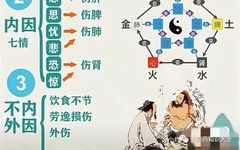 First, everyone should understand how diseases arise:
First, everyone should understand how diseases arise:
Traditional Chinese Medicine (TCM) believes that the occurrence and change of diseases are complex. In general, deficiency of Zheng Qi (正气, vital energy) is the fundamental cause of disease, while pathogenic factors (邪气, xie qi) are the conditions for disease onset. When pathogenic factors invade the body, Zheng Qi rises to resist the pathogens; if Zheng Qi overcomes the pathogens, disease does not occur; if the pathogens overpower Zheng Qi, disease occurs.
Additionally, diseases are related to the living and working environment, climate changes, geographical characteristics, etc. Moreover, a person’s constitution and mental state determine the strength of Zheng Qi and are closely related to diseases.
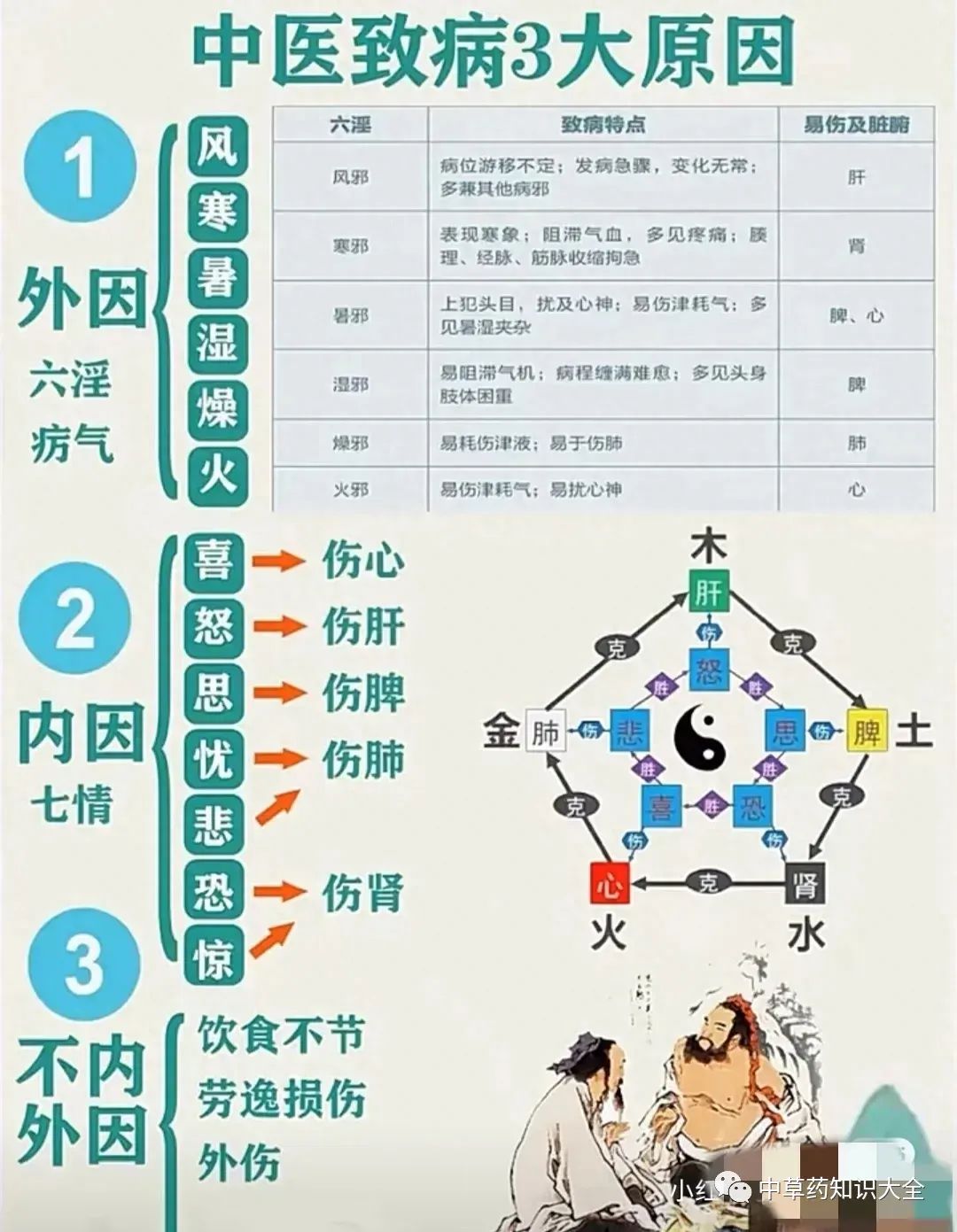
Causes of Disease
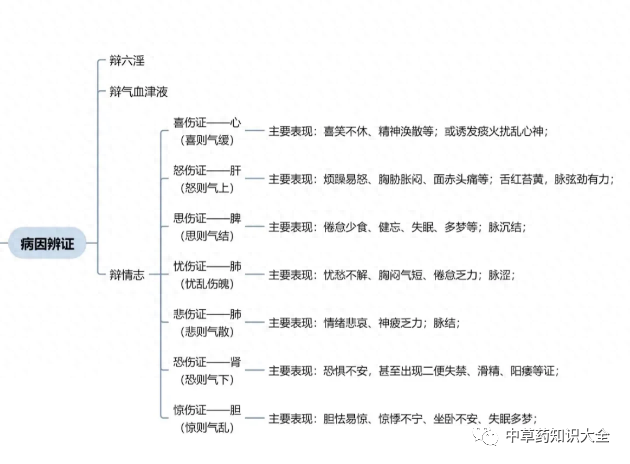
Eight Principles Differentiation:
Concept
The Eight Principles (八纲, ba gang) refer to the eight categories of differentiation: Exterior (表, biao), Interior (里, li), Cold (寒, han), Heat (热, re), Deficiency (虚, xu), Excess (实, shi), Yin (阴, yin), and Yang (阳, yang). Eight Principles Differentiation involves using the Eight Principles theory to analyze and synthesize various disease data obtained through observation, listening, questioning, and pulse-taking, thereby discerning the depth of the disease location, the nature of the disease as cold or heat, the strength of pathogenic and Zheng Qi, and the Yin-Yang classification of the disease.
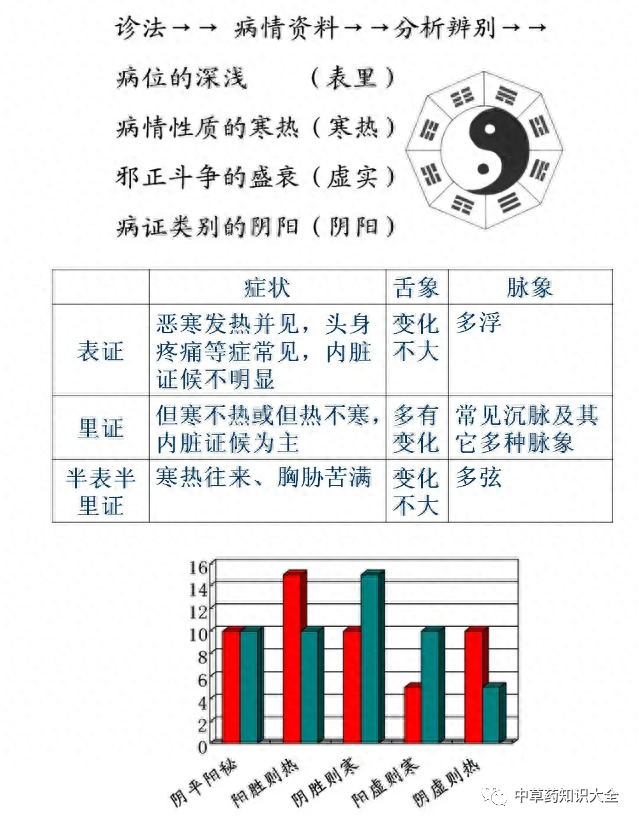
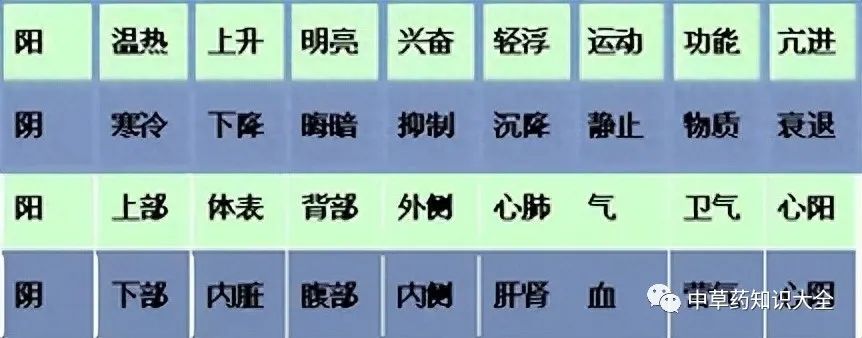
Distinction of Yin and Yang
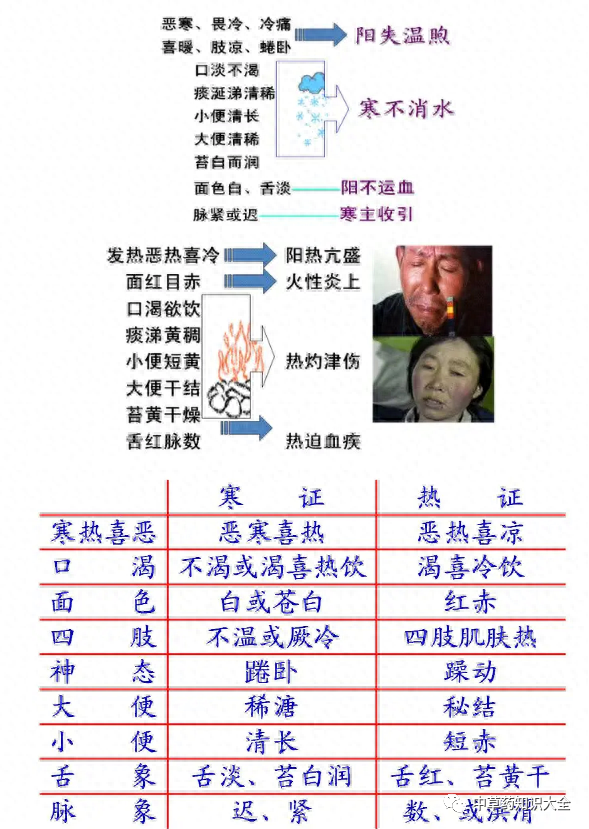
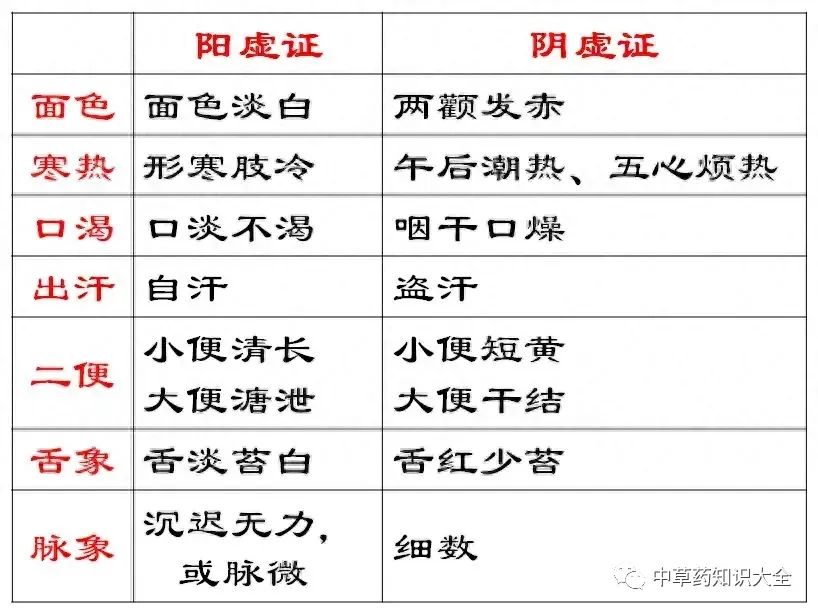
Deficiency and Excess Differentiation:
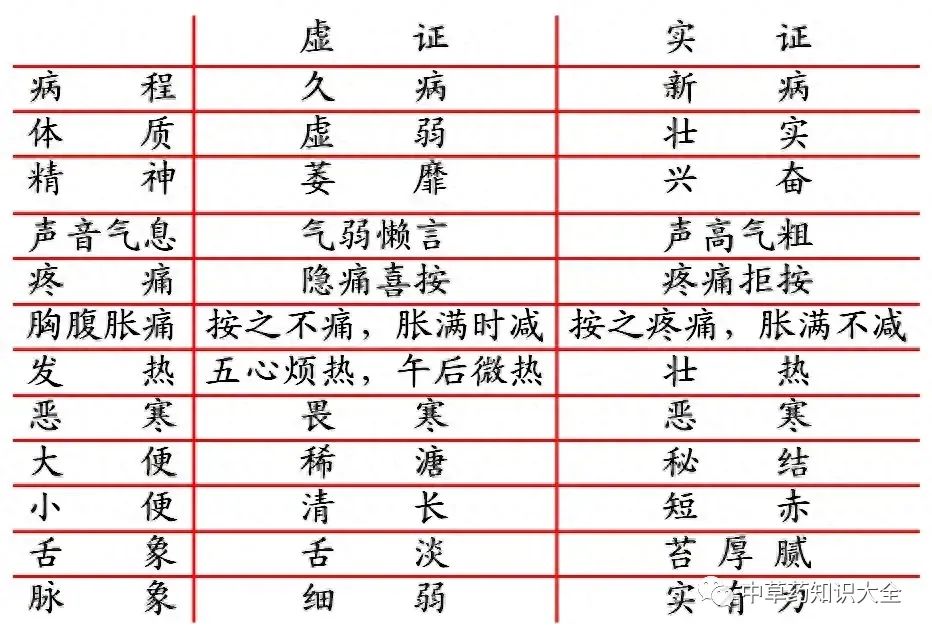
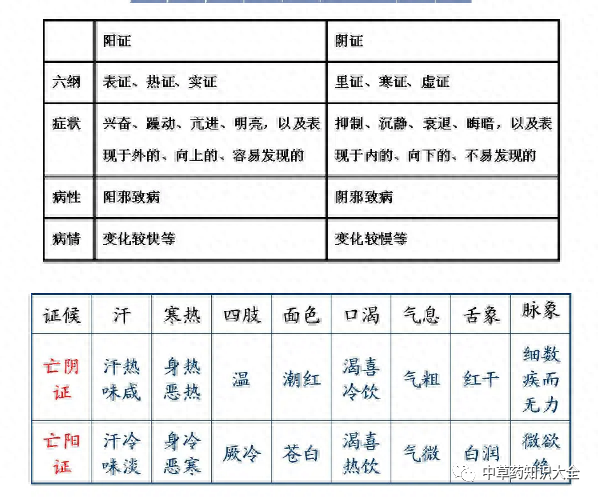
Qi, Blood, and Body Fluids:
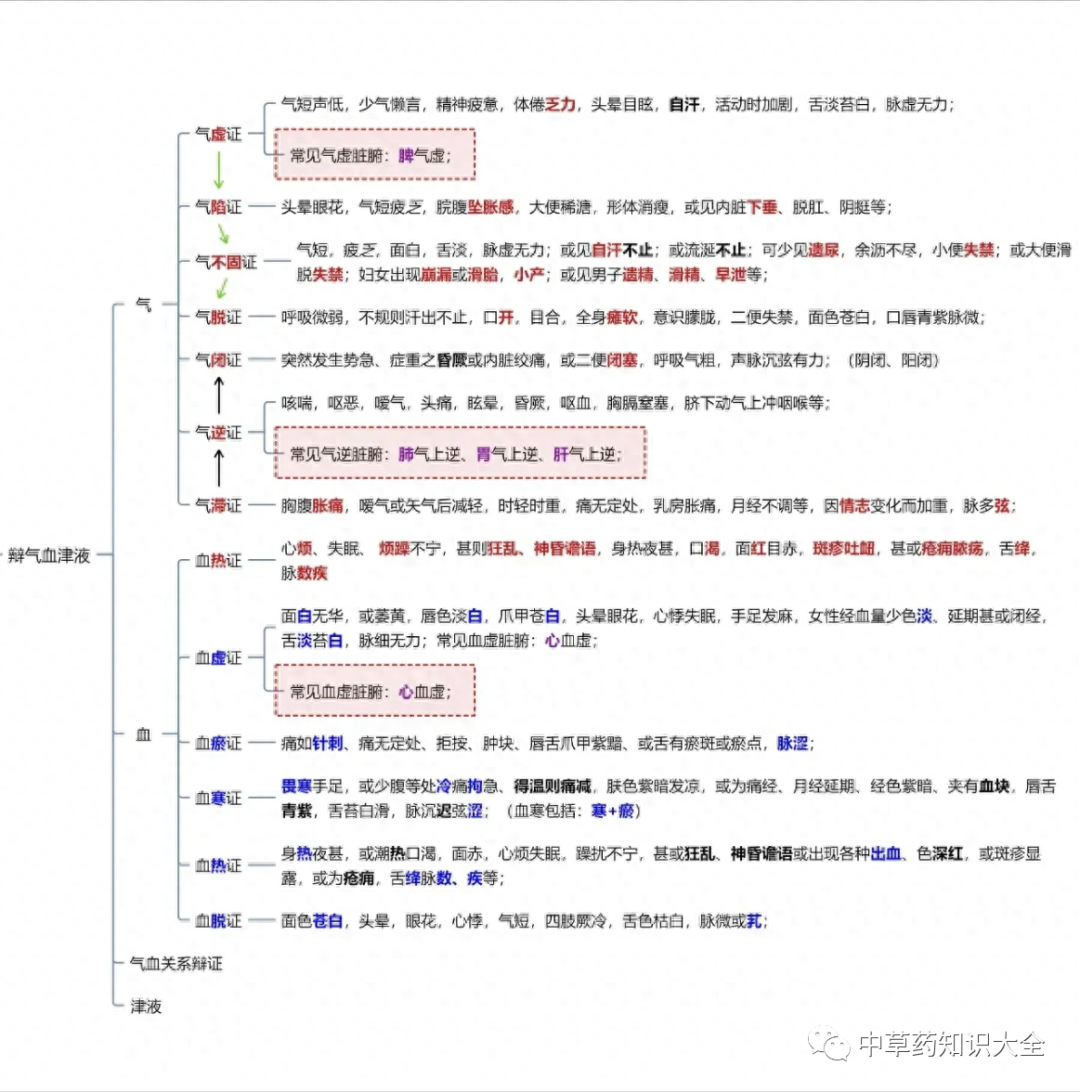
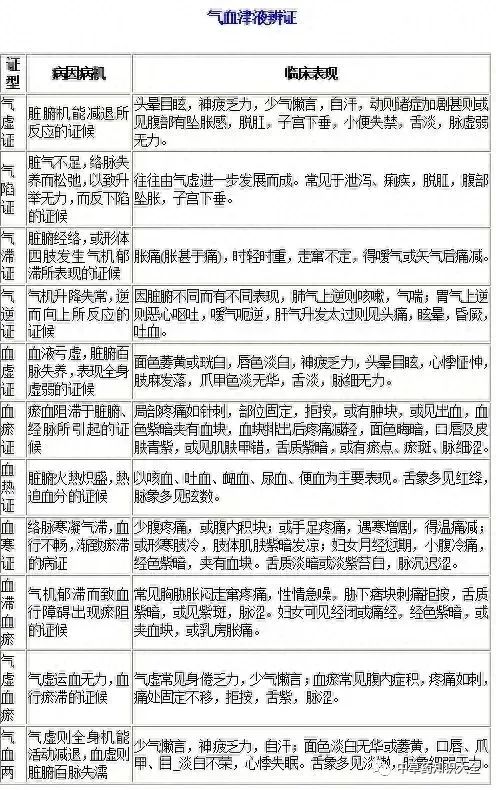
Quick Reference for Eight Principles Differentiation:
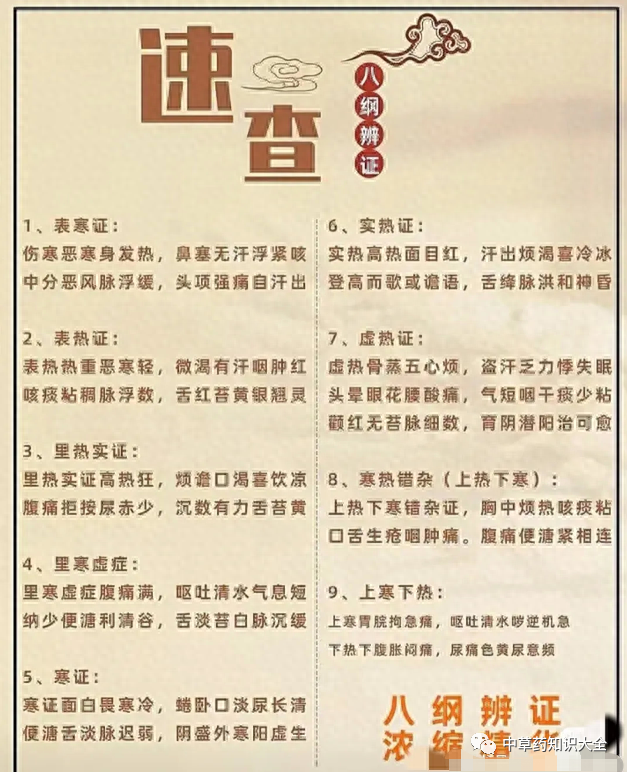
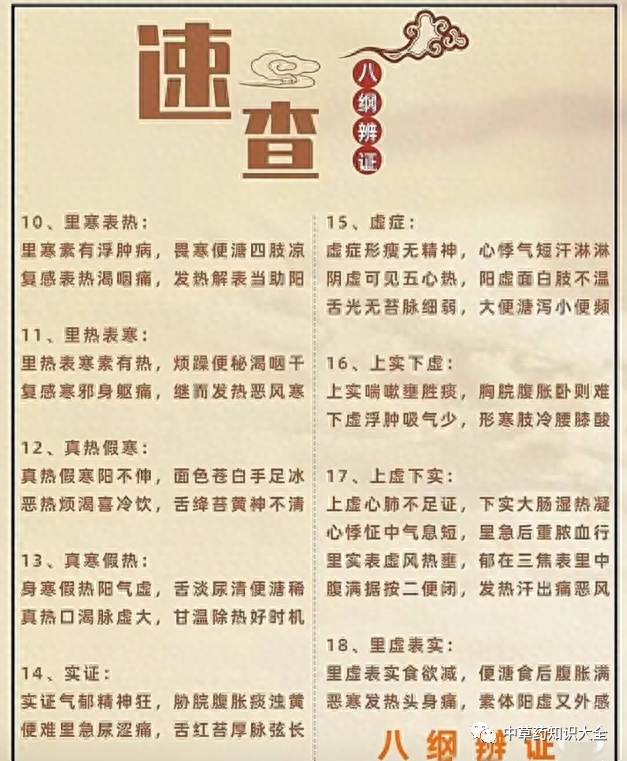
Specific Classification of Organ Differentiation:
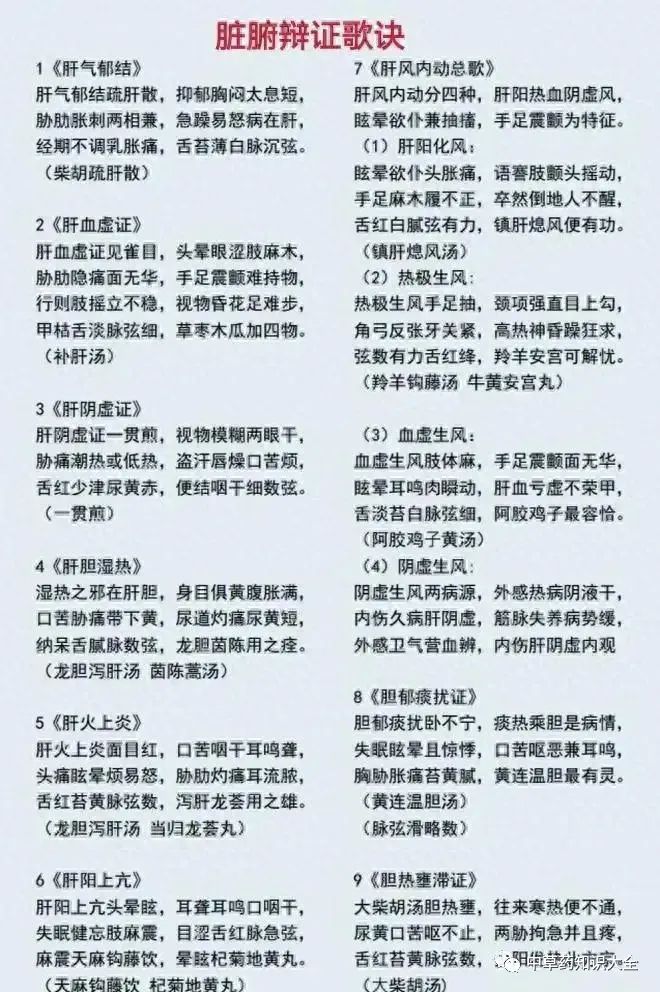
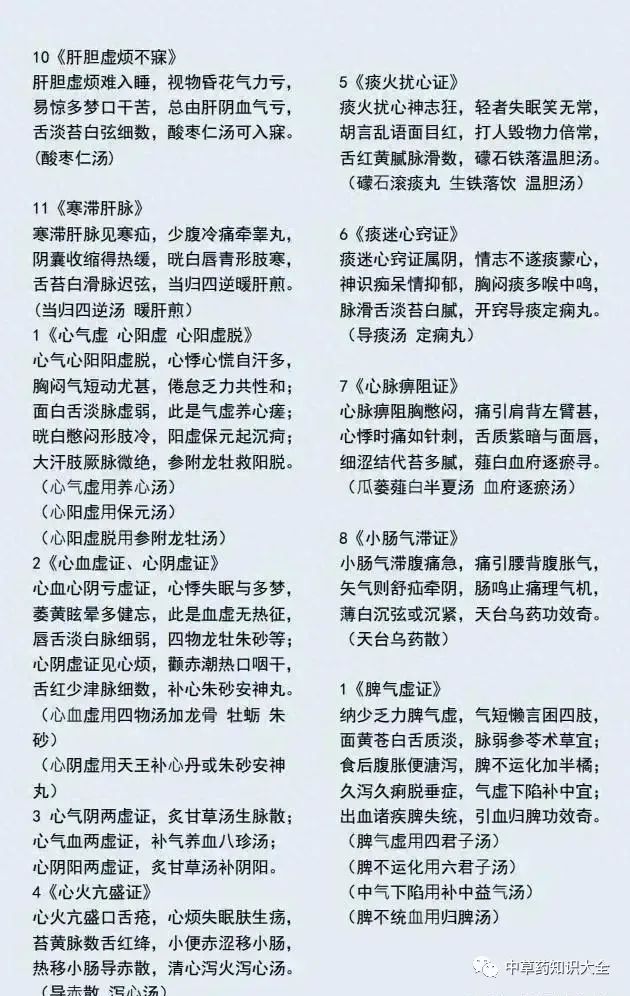
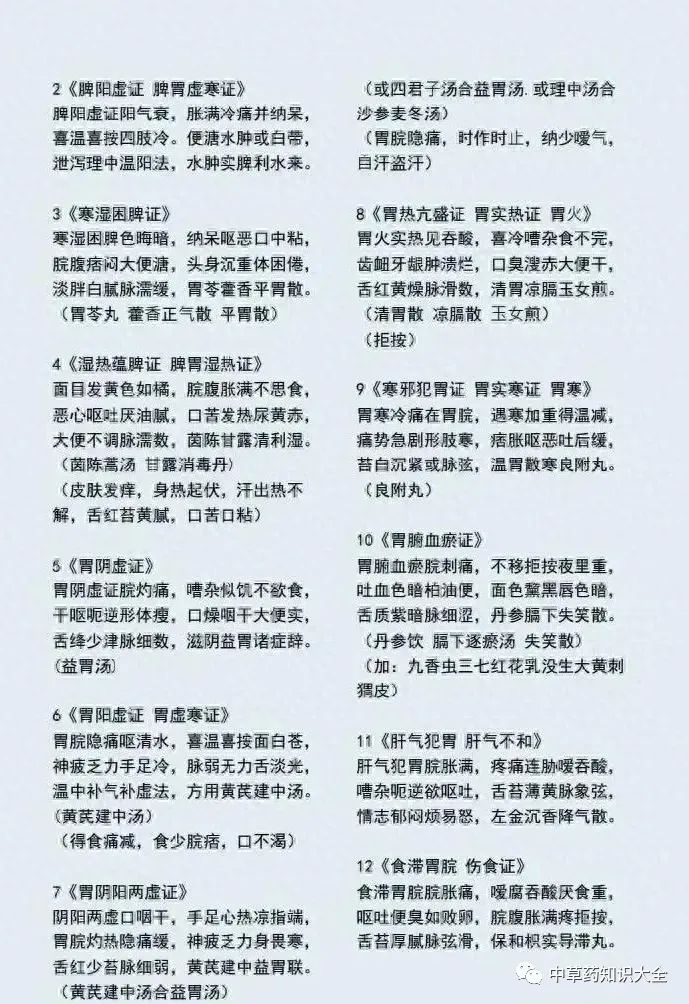
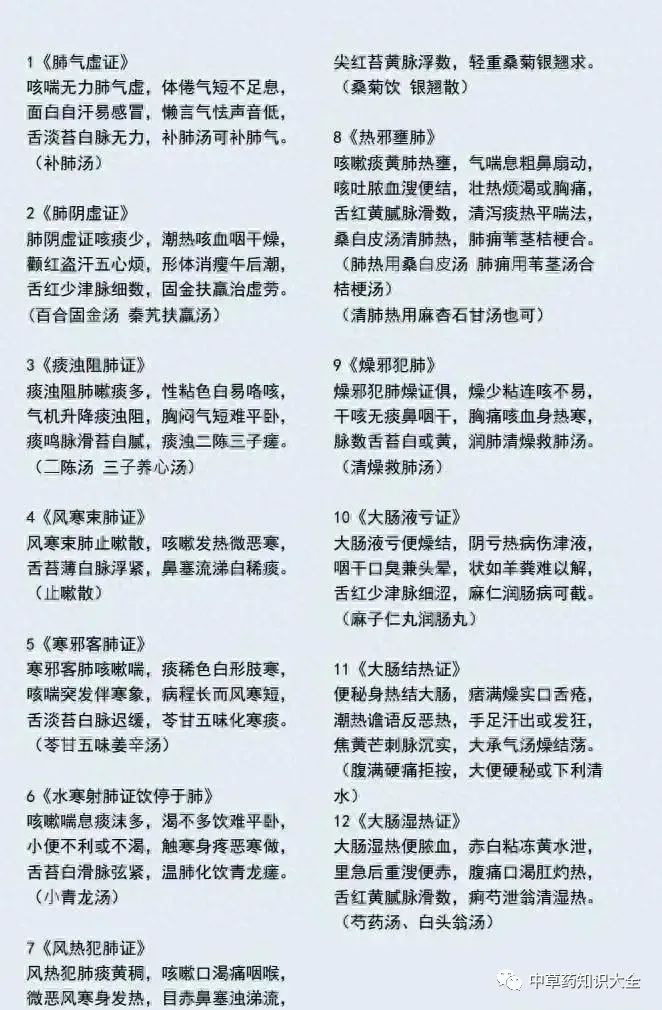
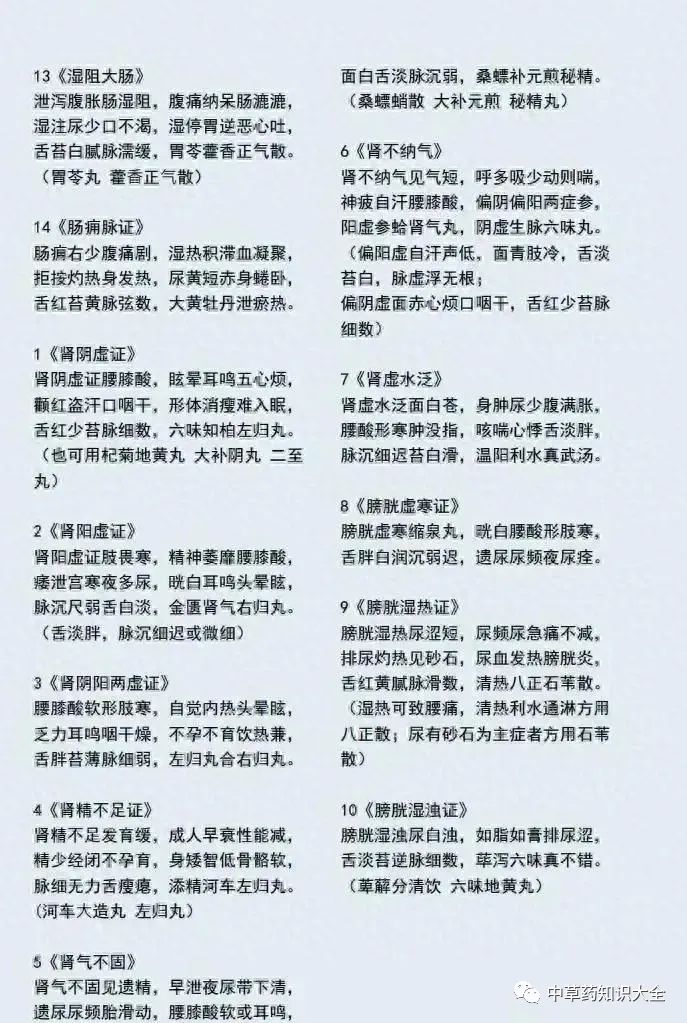
Note:This account aims to promote TCM culture, and the TCM knowledge mentioned in the text is for learning and communication purposes only.
WeChat has been updated! If you neither star me★ nor like or

